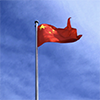Your Colleagues in the NewsCheck out the top-reaching stories of academic impact in traditional media. Metrics draw from English-language print, broadcast and online global media outlets. | Top stories (March 10-16*) |
-
Phyllis Zee finds that even a moderate amount of light during sleep can increase problems including high blood sugar and risk for cardiovascular disease. Zee was cited in 682 stories for a reach of 22.6 million. Top outlets include CNN, The Guardian, the "Today" show, WebMD, Fox News and many others.
-
Several scholars — most notably Ian Kelly, Jordan Gans-Morse, Olga Kamenchuk, Erik Nisbet and Brayden King — discuss the causes and consequences of escalating tensions between Russia and Ukraine. They were cited in 290 stories for a reach of 11.4 million. Top outlets include the Associated Press, The New York Times, NBC News, Business Insider, Fox News and many others.
-
Sadiya Khan finds that people who are obese during middle age have more health complications and die younger than those with a normal body mass index range. Khan was cited in 38 stories for a reach of 2.7 million. Top outlets include Healthline and the Daily Mail.
*To allow time for data processing and validation, the reporting period for top stories and quantitative media metrics runs Thursday-Wednesday. |  |
| Trending News | These are the trending topics in the news and on social media that we’re keeping our eyes on this week. If you have a viewpoint or expertise on any of the topics below and you’re willing to talk to reporters about them, email us at media@northwestern.edu. | We're looking for experts on the following topics | Ukrainian officials defiantly rejected a Russian demand that their forces in Mariupol lay down their arms and raise white flags Monday in exchange for safe passage out of the besieged port city. | The Senate Judiciary Committee has begun four days of hearings on the nomination of Judge Ketanji Brown Jackson, a historic choice by President Biden as he moves to fulfill his pledge to put the first Black woman on the Supreme Court in its 233-year history. | As President Joe Biden pushes for Americans to return to their prepandemic lifestyles, his administration is bracing for a new wave of COVID-19 infections without key funding or essential tools in its arsenal. Much of the administration’s plan for the next phase of the pandemic was based on the assumption that Congress would be giving it billions for treatments, vaccines and testing. But that money appears to be in jeopardy |
Mainland China reported its first COVID-19 deaths in more than a year on Saturday, according to a post on the National Health Commission's website that said two people died in the northeastern region of Jilin.
| Moderna is seeking approval for a fourth COVID-19 vaccination shot, pending a grant for emergency authorization use from the Food and Drug Administration. The decision to request an additional dose stemmed from data in the U.S. and Israel on the impacts of the omicron variant, the statement said. |
| NU Voices | Read perspectives from Northwestern faculty in national media. |  From Nancy Qian, The Korea Times "Ultimately, the Russia-Ukraine war's impact on the Chinese economy will depend on the duration of the conflict and the extent of the devastation that it causes in Ukraine and Russia, and other parts of the global economy. It will also depend on how much goodwill remains between China and Ukraine's Western allies when the fighting stops. Clearly, 2022 will be a year of uncertainty in which China has limited control over its rate of economic growth," Nancy Qian writes in The Korea Times. |  From Nathalia Justo, Chicago Tribune "With the designation of temporary protected status, or TPS, to Ukrainians by the Biden administration, familiar debates about the ethical responsibilities of the U.S. in the face of war resurfaced. ... But both sides miss the bigger question of whether TPS is an adequate legal mechanism of protection in the first place. And they miss the fact that the U.S. government designed TPS to selectively limit its responsibility toward unprotected populations," Nathalia Justo writes in the Chicago Tribune. |  From Andrew Koppelman, The Hill "Anti-vaccine ideology continues to infiltrate the federal judiciary. It now endangers national security. The Fifth Circuit Court of Appeals has declared that religious vaccine resistance is so important that Navy SEALs can defy orders and a federal judge in Texas can force unvaccinated crew members onto ships and submarines. ... The Supreme Court will probably reverse these decisions. But why hasn’t it done so already? Every day it permits them to stand damages American military readiness," Andrew Koppelman writes in The Hill. |  From Sarah Moore, The Washington Post "In late February, Colombia’s highest court ruled that having an abortion would no longer be a criminal offense. ... However, women in rural areas may still find it difficult to get equal access to abortion — because they don’t have equal access to health care more generally. Outside urban centers, our research finds, Colombians’ general health needs are often unmet," Sarah Moore writes with her co-author in The Washington Post. |  From Wil Burns, The Hill "Given the climate emergency we collectively face, and the current political vagaries and uncertainty of policy at the federal level, perhaps states can serve the American people as 'laboratories' for climate policy as well, specifically in the realm of carbon dioxide removal (CDR)," Wil Burns writes with co-author Toby Bryce in The Hill. |
| Media metrics | The following metrics reflect Northwestern's performance in 75 priority media outlets, chosen based on their reach and influence with key academic audiences. | Priority Media Outlet Performance Metrics | Coverage over time: |  |
| Northwestern topic breakdown: |  | | *Topic areas are assigned based on keyword search and reflect the subject of the article, not the department or unit of the individual cited. Some articles may be counted under multiple topic areas. |
|
| About | This weekly newsletter serves as a resource for faculty and communications staff, sharing news opportunities and highlighting faculty and University successes in traditional media. It also provides communications tools such as media training resources and announcements about upcoming sessions.
By providing these resources, we hope to help faculty show their expertise to a national and international audience as well as recognize those who are making an impact.
We welcome your feedback on this and all of our communications tools. You can reach us any time at media@northwestern.edu.
Subscribe to Northwestern in the Media. |
|
|







